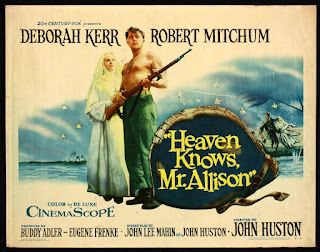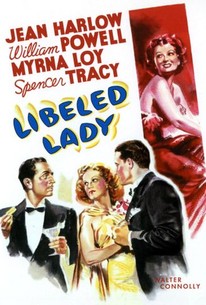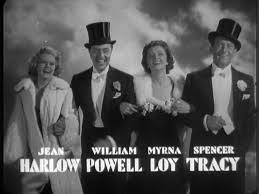Sunday, October 31, 2021
Fire, wood and smoke
It's been a bit of a letdown of an October, the month that is usually my (Simon) favorite. For one thing, most of it was too hot - positively steamy. This meant that the mosquitoes were not killed off and we didn't get the leaves going those wonderful colors.
Nonetheless, it's still time to get the chimney cleaned, so I booked well in advance, because they do tend to get booked up. But first, they kept putting it off because their truck broke down. Then, 3 days after they'd said they'd be there, they finally showed up, in a battered little van that was definitely not the "Stan's Fireplace" van that had shown up to clean the chimney for the past decade or so. And it wasn't Stan. I knew that Stan had been planning his exit for a while and had brought young apprentices with him the past few times, and I supposed that the one who seemed to be in charge, "Casey," was one of these that I'd forgotten. But his oafish looking assistant was definitely new. I assumed he'd be the one to climb on the roof while Casey worked the giant vacuum cleaner in the sitting-room. Well, I cleared out of there to let them work, and after around an hour Casey had cleaned up, reported that there was a lot of dirt this year but that our chimney looked great - no brickwork needed (because he also did brickwork) and that would be $225 please. Great, no problem. Now I turned my mind to getting wood delivered. This went off without a hitch - the guy I've bought from for the past three or so years was ready and able (he drives all the way from the "thumb" of Michigan with a large truckload - I have to buy a lot to make it worth his while, and I usually have some left over, so I transferred a large % of last year's remainder into our porch for burning first - and he and his girlfriend go and have a nice meal in the Big City of Flint with the $1000 I pay him). It's always a bit fraught when he squeezes his huge truck into our narrow driveway, past our porch (complaining all the while that our bushes are scratching his paintwork) then he tips up the back and has to drive forward to unload the wood, but not so far that he gets trapped with his truck bed raised against our porch and unable to back up because of the wood. He managed it admirably, and closer to the garage than normal, so we can squeeze both cars in the stretch of drive in front of the pile with room to spare.
Now all I have to do is put it away. Currently I have not done that, but I have at least covered the pile with tarpaulins, so it's ready for the snow.
Anyway, about two weeks after the chimney was "cleaned," it finally got cold enough for a fire and I tried to light one. I set it going and wandered into the kitchen just as Jami was heading the other way. "What's happening with the fire!?" I heard from the other room. I returned to see this:
The worst part is the smoke escaping from the bottom (it just looks like wispy dirt on the tiles in that picture) which is supposed to be impossible. Verdict: chimney NOT CLEANED. I texted Casey angrily (something to the effect of "come and do it properly or give me a refund" and, unsurprisingly, didn't hear back. And, also unsurprisingly, no response when I called. But then I tried calling with Jami's phone, and voila - he answered! He got a bit sulky-sounding when he realized he'd been duped into talking to me but said he might show up in a couple of days (he was convinced he'd done the job properly). Of course he didn't. I think I know the problem: he tried to clean the chimney from the bottom up, when you have to get on the chimney, remove the cap, and do it top-down. And also, his brush wasn't long enough to go all the way to the top and clean the gunk that was clogging the cap. So, it still being fairly mild, I decided to get on the roof myself. Observe:
The result? Well, it's still not optimal - I think I have to fiddle around and remove some firebricks in the stove, but the fire lights now. Now I have to stack that wood.
Saturday, October 30, 2021
Film review: Jimmy the Gent (1934)
This is Jimmy Cagney at his most Jimmy Cagney-est. Actually, it's more like Cagney playing Mo of the Three Stooges, if Mo was called Jimmy Corrigan (no, not that one) and ran a company which survived by producing fake heirs to the fortunes of dead millionaires (the film opens with a montage of rich folk meeting their abrupt ends in various ways, from falling off a horse to being on a train that collides head on with another train). He is very much the street tough made good through unscrupulous means (quote from the Vanity Fair review of this film: "Heartily recommended for the unethical"), with the support of his loyal if much put-upon (think Larry of the Stooges) pal/employee Lou,
and a cadre of lowlifes whom he sends out to track down plausible heirs. (However, Jimmy has some gold in his otherwise hard heart - he sees it as "doing his bit" to keep these losers employed, it being the Depression and all.) A competing business run by Charles Wallingham seems, on the other hand, thoroughly worthy, as well as being unbelievably swanky (one of the funniest scenes in the movie is Jimmy visiting Wallingham's office and being led by various flunkies into ante-room after ante-room, in each of which he is plied with endless cups of tea,
until his stomach loudly rebels). Wallingham's secretary is Bette Davis's Joan Martin, who used to work for Jimmy (and for whom Jimmy carries a torch)
until the venality became too much for her. The posh Wallingham seems entirely virtuous, insisting that they find the real heirs and only take a tiny percentage for their troubles. Jimmy suspects both that Wallingham has eyes for Joan and that he is not on the level, but nonetheless loves his setup and soon converts his office into one just as highbrow. The two offices appear to be at odds over the case of an old woman who lived off food left over by others, who meets her fate when she chews on a cyanide-laced sandwich left by somebody who committed suicide thereby. At the coroners they discover that her clothes have $200,000 worth of stocks and bonds sewn into them. Apparently her nearest potential inheritor is Monty Barton, who may be dead. His daughter is found by Wallingham, and looks to inherit, until Jimmy finds an informant (who, it is strongly hinted, is a heroin addict, desperately in need of a fix) who reveals that Monty is not only alive, but is (under an assumed name) wanted for murder. Jimmy tracks him down and suggests a scheme to him: marry the ex-lover of his victim (whom Monty swears he killed in self-defense) who is the only witness, with the promise of half the money. That way Monty escapes the chair and ends up with $100K. But first, Monty must get married to somebody else - in this case Mabel the bubbly airhead girlfriend of Lou (played deliciously by Alice White), albeit under an assumed name.
This will mean that when he then marries the witness, the marriage is invalid and she can't collect. But then when Mabel tries to collect, she can't either, because it's not her name on the marriage certificate. (But wouldn't that make the marriage to the witness valid? Best not to think too hard about it.) This whole shenanigans works, and Monty walks free, while Jimmy pockets $100K. This disgusts Joan so much she responds to Wallingham's invitation to "go away" with him with an agreement to marry him (which was not quite what he had in mind). But Jimmy thinks he can win Joan back by exposing Wallingham...
A breezy just-over-an-hour, with some great dialogue and slapstick, but also some parts that drag a little, the pacing in these old films often being rather uneven to the modern eye. But Cagney, as ever, is someone you can't take your eyes off.
Saturday, October 23, 2021
Film review: Heaven Knows, Mr. Allison (1957)
As this was in CinemaScope, I thought an extra-wide poster was appropriate. This is the film John Huston directed right after The African Queen, and the general consensus seems to be that it was rather dismissed as being too similar, in the "rough-and-ready American Male rescues prissy female of higher intellectual class" vein. Only this time, instead of Bogart and Katherine Hepburn, we have Robert Mitchum (unusually lovable!) and Deborah Kerr (in a lesser nun-playing role after Black Narcissus), and instead of Africa we have the war-torn South Pacific. So in that respect, it has a lot in common with Father Goose, only Mitchum is as marooned as Kerr, having been a marine whose submarine was attacked just as he was getting out of it, and who washes ashore in a rubber dinghy. And it's a good deal less of a comedy than Father Goose, despite the jokey-sounding title. In fact, it would be fair to say that it's a rom-com without much of either, as Kerr's vocation is a pretty large barrier to the latter. (Perhaps the biggest concession to the latter is an early scene when they still have Allison's boat and use it to chase a big sea turtle, who puts up a fight - see magazine clipping below for Kerr's sweary comment during the filming.)
However, it would also be fair to say that it's surprisingly gripping, especially as the two leads are pretty much the only people on screen for the vast bulk of the film, apart from some Japanese-speaking Japanese soldiers, and a rescuing party of American Marines at the very end (spoiler). And the film opens like a thriller, with Mitchum furtively exploring an apparently-deserted camp that might conceal hidden Japanese soldiers, having washed ashore in his escape-raft. What he finds, of course, is Kerr, sweeping out the church which sits rather incongruously among the tropical foliage. Turns out she's been there four days because she came with the septuagenarian Father Ryan to help rescue another Father, who had already left, only to have the nervous natives who ferried them there abandon them for fear of the encroaching Japanese. Father Ryan didn't last two days, either, and is buried in a fresh grave, leaving behind only his pipe.
Turns out Mitchum's Mr. Allison (we never learn his first name) is so-named because he was delivered as a baby to an orphanage on Allison Street in Milwaukee, whence he escaped to a life of crime at age 14, only to be rescued by the Marines. He sees his commitment to the Marines as very similar to Sister Angela's devotion to the church. Of course he falls for Kerr's Irish nun fairly quickly, although her nunnitude is played very seriously and her devotion clearly earnest, something that makes the film seem more grounded and earnest than you would expect. Clearly Huston, who also wrote the script, had a great deal of respect for the Catholic faith, despite having Mr. Allison refer to believers in the Marines as "Mackerel snappers". (Turns out Sister Angela is not, herself, a good Mackerel Snapper, as she cannot keep down the raw fish he feeds her, which in turn leads to an incredibly tense scene where he raids the stores of the Japanese camp currently on the island. He gets trapped overnight, and Sister Allison wakes up to find him not there and is convinced he's been shot.
(In the course of the film there are first, no Japanese, then the raft they are adapting to sail to Fiji gets bombed by the Japanese, who then land and form a camp, then the camp is deserted, then the Japanese come back. It all makes sense, and this raid is in the first stay.)) (Having said that, apparently the National Legion of Decency monitored the production, and "knowing this, Kerr and Mitchum deliberately ad-libbed a scene (not included in the final print) in which their characters wildly kissed and grabbed at each other." Good for them!)
But in general, Mr. Allison is nothing but solicitous for Sister Angela, the one exception being when the Japanese desert their camp and the two of them move in and Allison gets drunk on a bottle of Sake they find hidden (seen earlier by Allison on his raid for supplies) and laments that she had to be so young and pretty, "with FRECKLES". This turns into a speech about how they don't have to be loyal to the church and the Marines because the war has passed them by and they're like Adam and Eve (which would've been a better title than the misleadingly corny one they went with). (At this point there has been a big sea battle in the distance and they don't know who won, but if it had been the Americans they would've landed by now. The next day the Japanese return.) When he's drunk, you get a glimpse of the scary Mitchum of Cape Fear or Night of the Hunter, and Sister Angela runs out in tears into a rainstorm. This being Hollywood, this automatically leads to a dreadful fever, and the remorseful Allison has to drag her back to the cave they'd been hiding in when the Japanese were here the first time when they come back. Only he has to do another raid on the camp for warm blankets (after he has to remove her from her wet clothes - something that is passed over off screen) and this one doesn't go off so well - he ends up having to stab someone to death, something that Sister Angela bitterly regrets when she hears about it, and not just because it causes the Japanese to scour the island. In fact, they are about to be grenaded out of their cave when the Marines arrive.
Allison has to do one last feat to ensure they can land safely before the film wraps up... very unsatisfactorily, if you're hoping for Hollywood ending. But ambiguous enough that you can hope for a happily ever after. Overall, not especially deep, but a very solid and absorbing little number, with genuine chemistry between the two leads, who are both at the top of their games.
Sunday, October 17, 2021
Film review: Libeled Lady (1936)
What a lineup!
Here's the main idea: Spencer Tracy is newspaper man Warren Haggerty, who is about to wed his fiancee, Gladys,
is called away (and relieved to be) to deal with a disaster, viz, the paper has put a false rumor on the front page about Connie Allenbury (Myrna Loy), socialite daughter of millionaire James B. Allenbury (a very familiar-looking Walter Connolly), and before they can recall all the editions, the Allenburys get wind and Connie sues them for $5 million (in 1936!). Warren's solution is to hunt down the paper's "libel man" - that is, the guy who gets people suing the paper to stop, through fair means or foul. This is William Powell's Bill Chandler, and there's no love lost between him and Haggerty, who fired him. (Turns out he's very fireable - since he left this paper he moved through papers all over the world, only to be traced to a hotel in New York.) The plan is to be on the same boat as the Allenburys coming back from Europe and to charm Connie into his cabin for a cocktail, there to be photographed and countersued by Chandler's "wife" for estrangement (which would also undermine the libel suit because that's essentially what they'd accused her of in the false headline). So, to set this up, Bill needs to be married, and Haggerty, heel that he is, nominates his fiancee. She is none-too-pleased at this plan, especially as she's been married and divorced already, and wants to have a marriage that lasts. But she goes along, and the two are married. (The justice of the peace is outraged when the "bride" liplocks with the "best man" (Haggerty) and Chandler has to explain that he's an old friend of the family.) The couple has to make an appearance of connubial bliss by sharing a hotel suite, but Gladys insists on a locked door between them. However, the next day Bill is off to Europe to set the plan in motion. Thus begins the real meat of the film, which is the developing romance between Bill and Connie. It gets off to a very rocky start (to Bill's surprise - he has a reputation as a ladykiller), although Bill does completely win over Pere Allenbury by checking out every book in the ship's library on angling. However, Connie resists his charms
and even tricks him into having cocktails with a very tedious mother-daughter pair instead of her. It is, in fact, only when Bill gets fed up with her and gives her a piece of his mind that she starts to see him as potentially more than a grifter. By this time they are back in New York: Haggerty is annoyed, but Bill insists he's making progress, and in fact has been invited on a fishing trip with the Allenburys, the only problem being that he has no idea how to fish. Haggerty arranges for a master angler to come and give him tips, which requires another night in the hotel suite with Gladys. Perhaps predictably, Gladys has begun to warm to Bill, and find the process of him learning how to fish hilarious - at least until he successfully sinks a hook into her backside, demonstrating his natural skill at the fiendishly difficult "underhand" style of casting. Indeed, Connie is still certain that Bill is a fake until she, too, witnesses the glory of his cast.
Actually catching a fish proves difficult, however, so he moves upstream from the Allenburys so that he can take notes from the book he brought along, but after a sequence of several pratfalls (something one might not have thought the suave Powell capable of) he ends up hooking Ol' Walleye, a trout the Allenburys have been trying to land for years. The plan is for Haggerty and Gladys to drive up and for Gladys to burst in on Bill and Connie, but Bill has such a nice time with Connie (she shows him their mid-lake cabin, complete with gramophone) that he sneaks out and meets them on the road and claims that Connie isn't even there. Thus begins Bill's double life: he courts Connie by day, while stalling Haggerty, and coming home to the ever-more-doting Gladys. Things are coming to the boil! He's trying to gently push Connie to drop the lawsuit, but there are limits to the leverage he has without blowing his cover. Finally, Haggerty decides he'll just go and throw himself on Connie's mercy and see if that works. He meets her chez Allenbury
and spins her a tale of how her lawsuit will put so many good men and women out of work, and that's all that he really cares about. Connie responds that his speech has softened her heart, and that she has decided to donate her $5M to a trust fund to those poor ex-newspaper workers. Haggerty is cornered, but at that moment Bill strolls in, and Haggerty finds out what's really been going on. He leaves and runs to a phone and tells Gladys (whom he knows has been getting soft on Bill) the whole story, counting on her now-genuine rage causing her to storm up there on her own initiative. However, Bill manages to intercept her and talk her round. BUT, then Haggerty has a fake edition of the paper printed that announces the impending marriage of Bill and Connie and hands it to Connie (who is having her hair bleached and has a face covered in cream - perhaps a comment on the fact that Harlow was always referred to as a bleached blonde),
and we're on again for the storming in. MEANWHILE, the gossipy mother-daughter pair from the ship have overheard reference to Chandler's wife (they're staying in the same hotel) and tell Pere Allenbury, at the same party that Gladys is rushing to, closely followed by a car full of photographers hired by Haggerty. The father breaks it to Connie, and she decides she'll confront Bill about this marriage... by asking if he'll marry her right now. What will he do? He can't accept, can he? That's bigamy! (It's big o' you too - let's be big for a change!) But he does!
But how? Well, because of a loophole he's discovered. Or has he? Many twists and turns at the ending, and a knock-down drag-out fight between Powell and Tracy.
Very satisfying. Definitely a classic screwball comedy - I'm only surprised we hadn't come across it before.




















































